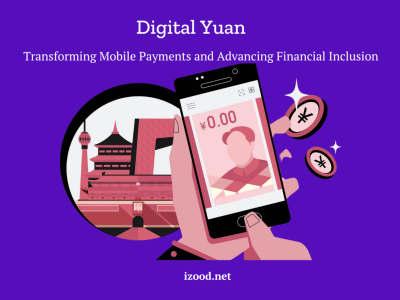
Blockchain technology has emerged as a transformative force reshaping the landscape of business operations across industries worldwide. With its decentralized, transparent, and secure nature, blockchain is revolutionizing traditional business processes, offering unparalleled efficiency, transparency, and security. According to recent statistics, the global blockchain technology market size is projected to reach $72 billion by 2026, growing at a compound annual growth rate (CAGR) of 51.9% from 2021 to 2026. This exponential growth is a testament to the increasing adoption of blockchain technology by businesses seeking to streamline operations, enhance security, and unlock new opportunities for innovation. As organisations continue to recognize the potential of blockchain, they are leveraging its capabilities to drive efficiencies, reduce costs, and transform the way they conduct business operations. In this article, we delve into how blockchain technology is revolutionising various aspects of business operations and explore real-world examples of its implementation across different industries.
Ways Blockchain Technology Is Transforming Businesses
Blockchain technology is a game-changer for modern business operations, offering a host of benefits from increased efficiency and security to reduced costs and enhanced transparency. Here’s a closer look at how blockchain is revolutionizing various aspects of business:
- Supply Chain Management
The global supply chain has grown increasingly complex, with goods passing through multiple hands before reaching the consumer. This complexity often leads to challenges like counterfeiting, lack of traceability, and inefficiencies. Blockchain technology addresses these issues by providing a tamper-proof, transparent ledger that records every step of the supply chain. Each transaction is time-stamped, providing a clear and immutable audit trail that improves traceability and reduces the risk of fraud. Companies like Walmart and Maersk have successfully implemented blockchain solutions in their supply chains to increase transparency and efficiency.
- Digital Identity Verification
In the digital age, the issue of identity verification is critical. Traditional methods, like passwords and biometrics, are vulnerable to hacking and fraud. Blockchain offers a secure solution for digital identity verification by creating a decentralised, tamper-resistant system that eliminates the need for third-party verification. Companies like Civic and SelfKey are leveraging blockchain to provide individuals with self-sovereign digital identities, empowering users to control their personal information securely.
- Smart Contracts
Traditional contracts often require intermediaries to enforce and manage agreements, which can lead to delays and increased costs. Smart contracts, powered by blockchain technology, automate and enforce agreements through coded terms, eliminating the need for intermediaries. These contracts can be used for various applications, such as supply chain management, real estate transactions, and financial services. Ethereum, a leading blockchain platform, offers smart contract functionality, allowing developers to create decentralised applications (DApps) with self-executing contracts.
- Cross-Border Payments
International transactions often involve multiple intermediaries, resulting in high fees, long settlement times, and potential security risks. Blockchain technology simplifies cross-border payments by removing intermediaries and enabling direct peer-to-peer transactions. Nowadays, cryptocurrencies are becoming increasingly popular as many people have been buying/selling them to earn huge profits. Even inexperienced traders also trade with the help of auto trading bots such as Ethereum Code to make money faster. Cryptocurrency has also become a mode of cross-border payment. Ripple, for example, offers RippleNet, a blockchain-based payment solution that facilitates fast, secure, and low-cost cross-border payments. This technology has the potential to revolutionise the global payments industry by making transactions faster, more affordable, and more transparent.
- Data Security and Privacy
Data security and privacy are paramount in today’s digital landscape, where data breaches and cyberattacks are all too common. Blockchain offers a decentralised approach to storing and transmitting data, making it more secure and less vulnerable to hacking. The technology’s cryptographic features ensure that data is encrypted and tamper-proof, providing a higher level of security and privacy. Projects like VeChain and Enigma are developing blockchain-based solutions to protect data and enhance privacy across various industries.
- Energy Trading
The energy sector is undergoing a transformation, with a growing focus on renewable energy sources and decentralised energy systems. Blockchain technology is playing a crucial role in this transformation by enabling peer-to-peer energy trading. This allows consumers to buy and sell energy directly, without the need for traditional suppliers. Projects like Power Ledger and WePower are leveraging blockchain to create decentralised energy trading platforms, promoting renewable energy adoption and empowering consumers to manage their energy usage more efficiently.
- Intellectual Property Management
Protecting intellectual property rights is essential for creators, artists, and businesses. Blockchain provides a secure and transparent platform for managing digital assets, allowing creators to prove ownership, enforce licensing agreements, and receive automatic royalties. This reduces the risk of piracy and unauthorised use of intellectual property. Companies like KodakOne and Copytrack are developing blockchain-based solutions to protect and manage copyrights and other digital assets.
Conclusion
Blockchain technology is revolutionising business operations by providing a secure, transparent, and efficient way to manage transactions, identities, and digital assets. As businesses continue to explore their potential, they can unlock new opportunities for innovation, growth, and operational efficiency in the digital economy. With its decentralised architecture and cryptographic security, blockchain is poised to transform various industries and redefine the way businesses operate in the digital age.







